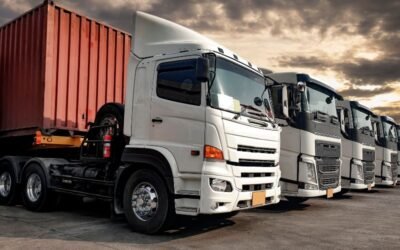Although racing events are thrilling and intense experiences, just as important as the race itself is getting your car to the track safely. Long-distance towing calls for careful preparation whether your race car is traveling to a national championship or a regional competition to guarantee flawless condition. Long-distance towing across Sydney adds additional factors than short journeys, including possible road dangers, longer travel durations, and vehicle wear and tear.
One must be ready sufficiently to ensure that everything happens according. From determining your towing needs to ensuring the correct tools and becoming ready for any obstacles along the road, thorough planning is very vital. The important actions for towing your race vehicle over long distances and ensuring stress-free travel are listed below.
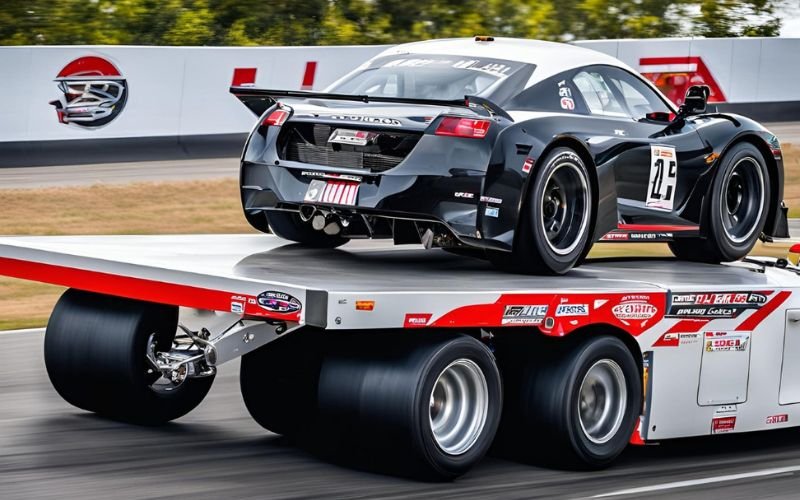
Understanding the Basics of Long-Distance Towing for Racing Events
Long-distance towing for racing events requires careful planning, considering numerous elements to guarantee safe and effective travel. From selecting the correct tow truck and trailer to making sure your racing car is securely fastened, every element of the towing procedure has to be attended to. Your towing approach may also be impacted by factors like weather, road conditions, and event-specific needs. Whether you are dealing with cross-country or handling your towing in Fairfield, good preparation is crucial.
Once you know the fundamental components involved, you can begin to create a towing strategy covering all the bases. Good preparation helps you avoid mistakes, safeguard your money, and finally enable you to show up for the event ready to run. This thorough guide will assist you in methodically negotiating the towing procedure.
Steps Involved in Planning
1. Assess Your Towing Requirements
It’s important to evaluate the specifics of your towing needs before you even consider taking your race car in a tow truck.
Evaluate the Vehicle Being Towed
Knowing the demands of your race car comes first. Is it a dragster or a lightweight track car? Understanding the weight, dimensions, and handling qualities of your race car can assist you in choosing the kind of truck and tow car required. Heavier automobiles, for example, need a more strong tow vehicle with enough towing capability.
Determine the Towing Distance
Long-distance towing introduces even another degree of difficulty. If you are transporting across several states or areas, the long journey might strain your tow car and trailer, especially. Knowing the precise distance will help you decide anything from the fuel consumption to the number of rest stops you should schedule.
Understand Event Requirements
Events involving racing might have certain rules regarding towing. For an inspection, you might have to show there at a set time; for trailer parking, follow guidelines tailored to that event. Review the rules of the event to steer clear of any last-minute shocks.
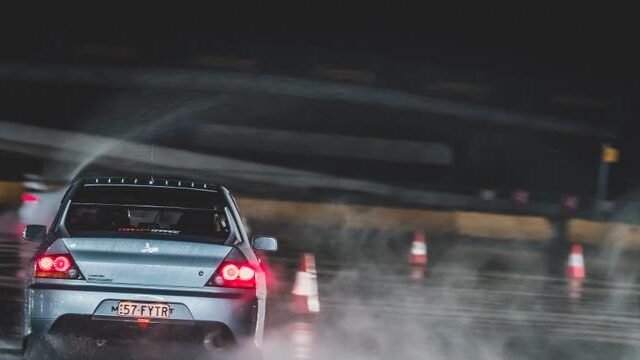
2. Select the correct equipment and Tow Vehicle.
Ensuring a safe and effective journey depends on selecting the correct equipment and tow truck. Choosing a tow truck and trailer that can manage the weight and particular needs of your race car will help those managing towing in Bankstown or other locations guarantee safe travel over great distances.
Tow Vehicle Selection
Not all vehicles are designed for towing, particularly long-distance towing of race cars. Think about the towing capability of the tow vehicle you are choosing. Usually the preferred vehicle is a strong truck or SUV, but you should make sure its towing capability easily surpasses the weight of your car and trailer taken together. Reliability is also very important; a breakdown during your trip might compromise your event participation.
Trailer Options
Trailers fit for diverse purposes and come in several forms and styles. Two primary forms are enclosed and open trailers:
- Enclosed Trailers: Perfect for long-distance towing, enclosed trailers provide better defence against the elements, road trash, and even theft. Usually, they are more costly and heavier.
- Open Trailers: Although open trailers are lighter and more reasonably priced, they expose your race car to dirt and weather. When budgets are a consideration or for shorter trips, they are most suited.
Choose a trailer that will fit your car’s weight and dimensions and that will also have enough tie-down points to safely secure it.
Essential Towing Accessories
Beyond the vehicle and trailer, you’ll need several key accessories:
- Towing Mirrors: Maintaining view surrounding the trailer depends on extended mirrors.
- Brake Controllers: Essential for controlling the trailer’s brakes, particularly when slope descent or rapid stops are involved, are brake controllers.
- Hitch Systems: Select a suitable hitch system to guarantee a strong link between the trailer and your tow car. For larger weights, weight distribution hatching are advised.
- Safety Chains: Always double up on safety chains to provide an additional degree of protection should the hitch break.
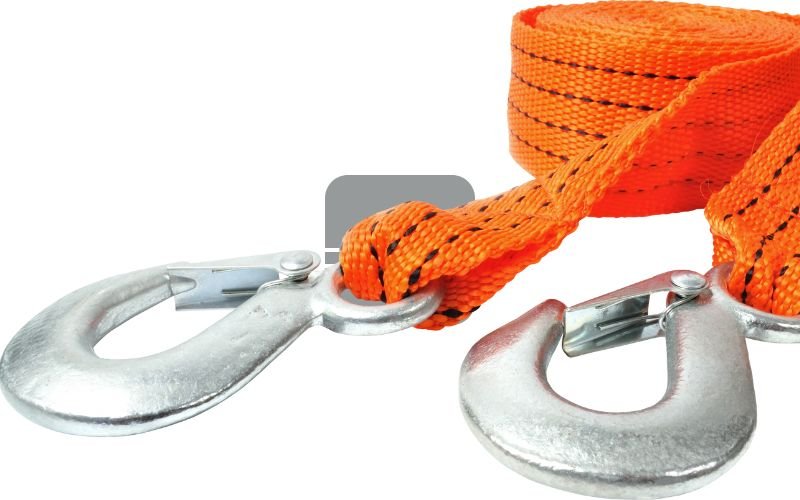
Invest in a Winch
Particularly if your racing vehicle breaks down or if you must put it onto the trailer in less-than-ideal circumstances, a winch may literally save lives. Verify that your trailer has a premium winch capable of handling the weight of your car.
3. Prepare Your Racing Vehicle for Towing
Correctly getting your racing car ready for towing will help to guarantee it arrives at the event in perfect shape and help to prevent damage during travel.
Securing the Vehicle
Getting your race vehicle firmly attached to the trailer is quite vital. Tie-downs, wheel nets, or heavy-duty straps can help you secure the automobile at several angles. Make sure the automobile cannot move during transportation, as any movement can result in damage or perhaps a traffic collision.
Disengaging Electronics and Fluids
Before towing, think about disconnecting the battery of the car and emptying extraneous fluids. This helps to stop leaks or unintentional electrical fires along the way. Engaging systems not required during transportation helps you avoid battery problems upon arrival for race vehicles with sensitive electronics.
Protecting the Car’s Exterior
Long-distance towing runs your automobile through road trash and weather conditions. Use cushioning to guard sensitive sections like the windscreen or side mirrors, or cover the car with a sturdy, weather-resistant cover even if you are using an enclosed trailer to provide additional protection.
Pre-Tow Vehicle Inspection
Give your race car a thorough examination before you start the road. Verify tyre pressure; make sure all fluids are topped off; tighten any loose bolts or fittings. By means of a comprehensive pre-tow examination, one may help avoid problems likely to develop during transportation.
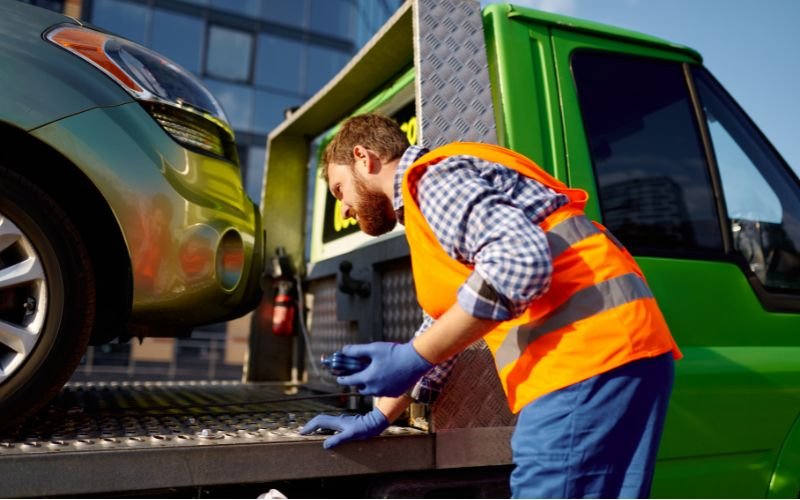
4. Plan Your Route and Logistics
Long-distance towing mostly relies on organising the logistics of your journey. Working with an experienced towing company in Blacktown will simplify the procedure and guarantee that your racing vehicle is securely transported and that all logistical difficulties of towing in Blacktown and surrounding areas are controlled with knowledge.
Mapping the Route
Plot the route carefully, weighing road condition, traffic patterns, toll roads, and locations with weight limitations. Usually, it’s preferable to follow a somewhat longer path with better roads than to run the danger of damaging your trailer or automobile on uneven, lumpy conditions.
Plan Fuel Stops and Rest Breaks
The distance will determine if you need to schedule multiple fuel stops and rest breaks. Long excursions expose a significant safety risk from fatigue; so, plan rest stops every few hours. If your trip takes several days, schedule your overnight stays ahead of time at sites with safe parking for your tow car and trailer.
Consider Weather Conditions
Consider the long-distance towing influence of the weather. See the projection for your path and make any adjustments in plans. Prepare with the required tools, like tyre chains, extra coolant, or a waterproof car cover, whether your expected rain, snow, or excessive heat.
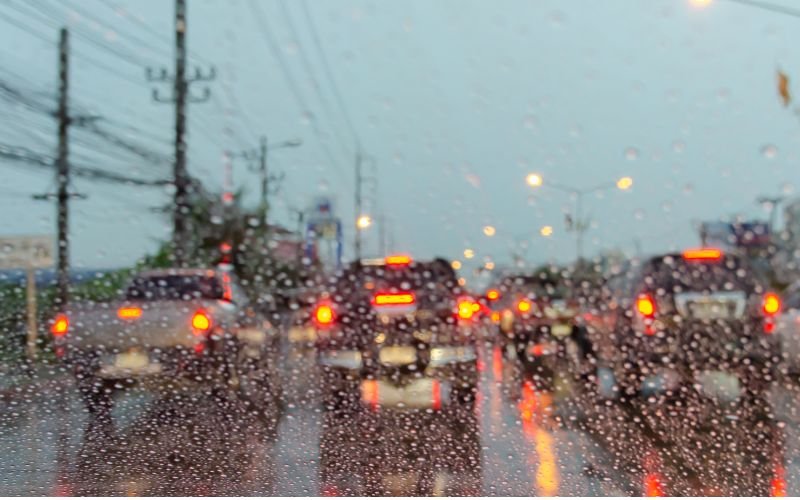
Account for Traffic and Delays
Include additional time to your calendar to cover unanticipated delays like road construction, accidents, or diversions. Arriving early for an event is always preferable to arriving late and losing vital inspections or track time.
5. Safety Considerations for Long-Distance Towing
When towing a race car across long distances, your first concern should be safety.
Vehicle and Trailer Safety Checklists
Look over the trailer and the tow vehicle carefully before starting your trip. Verify tyre pressure, brakes, and lights, and make sure all hitch connections are tight. This pre-trip inspection will assist in stopping road mechanical problems.
Motor Vehicle Safety
Towing calls on more awareness and concentration. Keep attentive, stay away from distractions, and follow towing speed restrictions. To help you avoid tiredness, think about assigning driving responsibilities to another individual if you are towing across a great distance.
Load Management
Safe towing depends critically on proper weight distribution on the trailer. Should the weight be uneven, the trailer may swing, therefore increasing the likelihood of an accident. Try for a balanced load, with maybe 60% of the weight towards the trailer’s front.
Emergency Preparedness
Always ready for the unexpected. Along with additional gasoline, a roadside help pack should contain a jack, tyre iron, spare tyres, and a first-aid kit. In an emergency, a dependable communication tool—a CB radio or a charged mobile phone—can be quite helpful.

6. Pre-Event and Post-Tow Inspections
Inspections both before and after towing guarantee that your race vehicle is in running order and that no problems develop during transportation.
Arrival at the Event
When you get to the event, go over your race car and trailer for any damage from the tow. Before racing the automobile, check its fluids, tyres, and general state of repair.
Post-Event Towing
Continue securing your car for the return drive following the event. Before driving once more, check the trailer and tow vehicle for any wear and tear and ensure everything is in excellent running condition.
Debrief and Maintenance
Debriefing is a good idea once the tow is over. What went particularly effective? There is room for development. This meditation will enable you to improve your approach for next activities. To guarantee your trailer and tow vehicle are in best shape for the next tow, also take care of maintenance on them.
Professional Towing Services vs. DIY Towing
It is always recommended to employ a professional for towing instead of doing it all by yourself.
Advantages of Hiring a Professional
Hiring a professional towing service may save you time and effort, particularly if you’re not skilled in towing or if your racing vehicle is highly valuable. Expert towing companies have the correct tools, trailers, and trucks to guarantee effective and safe movement.
DIY Towing Considerations
If you decide to tow your racing car yourself, be sure you are sure you can manage the trailer and tow vehicle across great distances. Although DIY towing demands a large time and effort investment, it allows you greater control over the operation.
Conclusion
Long-distance towing for racing events calls for careful planning, from determining your towing demands to guaranteeing road safety. Following the best standards for securing your racing car and selecting the appropriate tow truck, trailer, and equipment will help to guarantee a flawless and successful travel to the event. Whether you tow the car yourself or use a professional service, good preparation will enable you to concentrate on what counts most: enjoying the race and running at your best on the course.



